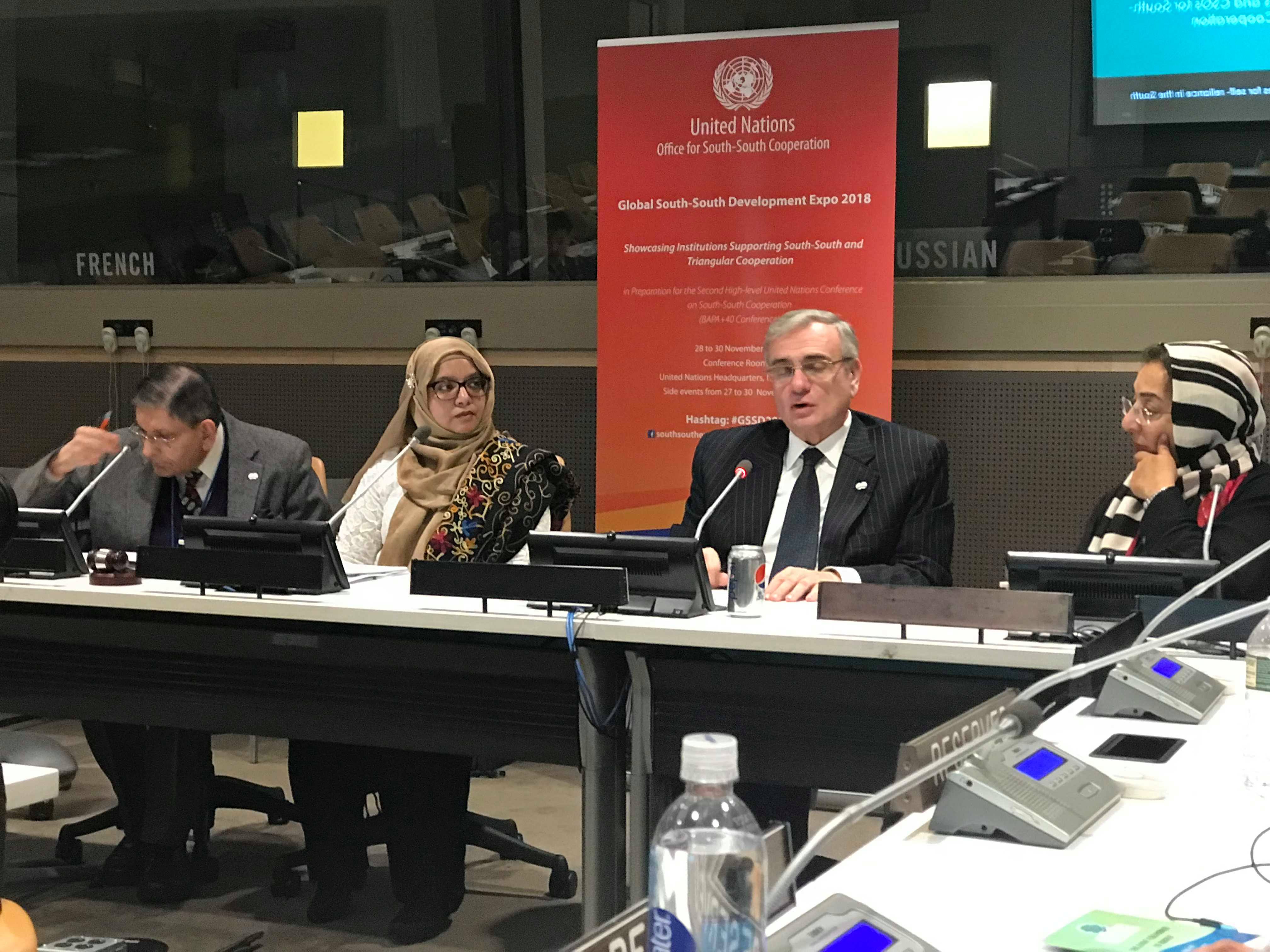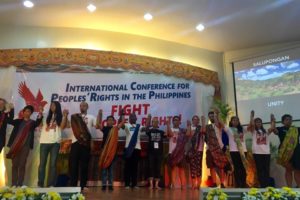[[{“type”:”media”,”view_mode”:”media_original”,”fid”:”2162″,”attributes”:{“alt”:””,”class”:”media-image”,”height”:”3024″,”style”:”width: 600px; height: 450px;”,”typeof”:”foaf:Image”,”width”:”4032″}}]]
On 29 November 2018, Jennifer del Rosario-Malonzo of IBON International gave the following input at a 2018 Global South-South Development Expo side event held in New York, on Uniting for Action at BAPA+40 and Beyond.
There are two important contributions that civil society organizations (CSOs) can make towards strengthening institutions and frameworks for South-South Cooperation (SSC): 1) Promoting a human rights-based approach (HRBA), and 2) Advancing people’s participation through people-to-people cooperation that would help to shift SSC’s focus from mere economic growth to a more holistic appreciation of the multiple dimensions of development. These efforts will help keep SSC from following the shortcomings of traditional North-South development cooperation and ensure that SSC’s enormous potential is directed towards sustainable development and the realization of people’s rights in the global South.
CSOs should push for applying human rights norms and standards as it provides a basis for mutual accountability, horizontality and coordination. The HRBA in development cooperation clarifies the roles and responsibilities of individuals and groups as rights holders, and governments and other relevant development actors such as international financial institutions, as duty bearers. The empowerment of rights-holders increases transparency, democratic ownership, accountability and effectiveness. HRBA mobilizes broad-based support and enhances the legitimacy and sustainability of SSC interventions.
SSC providers and partners should promote inclusive partnerships by ensuring the meaningful involvement of all development actors. CSOs, especially people’s organizations representing communities and stakeholders in SSC projects, should be able to participate in identifying needs and priorities, setting policies and standards, implementation, monitoring and evaluation at all levels.
As actual practice is often not in tune with SSC’s declared principles of horizontal cooperation, solidarity and partnership, there is a need for CSOs to be actively involved. Through the efforts of The Reality of Aid Network and the CSO Partnership for Development Effectiveness, the Southern CSO Alliance for South-South Cooperation was formed on October 14, 2018 in Bali, Indonesia. Initially comprised of 22 organizations, the Alliance is an independent group that brings together CSOs working on SSC and related issues. The objective is to facilitate and strengthen CSO involvement and participation in various SSC arenas and push for the upholding of the principle of horizontal development cooperation – including solidarity, mutuality, human rights, respect for sovereignty, and non-conditionality.
The Southern CSO Alliance on South-South Cooperation has issued a Unity Statement, which is still open for endorsement, and is garnering more members around Asia, Africa, and Latin America. It now has 36 members from 17 countries and regional and global networks. The unity statement calls on SSC actors to:
- Adhere to international laws and standards on environment and human rights as these apply to programs and projects in partner countries consistent with Bandung principles;
- Strengthen democratic country ownership of SSC and institutionalize support for people-to-people cooperation so that recipient countries’ own needs and priorities drive the development partnership, and that these priorities and policies are rooted in the participation of, and accountability to, stakeholders and citizens; and
- Establish formal mechanisms with financial resources for Southern CSO engagement on SSC where sustained dialogues between CSOs, stakeholders and duty-bearers can happen, bringing in issues and concerns of the people and affected communities on SSC.
The Alliance seeks to have a sustained engagement to push for a human rights-based framework and to cooperate and find synergies with broader civil society. It intends to engage in the 2nd High-Level United Nations Conference on South-South Cooperation or BAPA+40 in March 2019, through raising awareness among CSOs on the agenda and what’s at stake; organizing and coordinating engagement and participation of CSOs; and engaging in the preparatory and official BAPA+40 process. #


